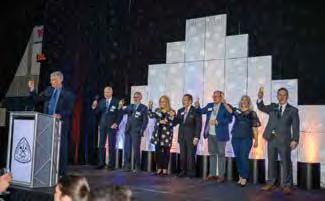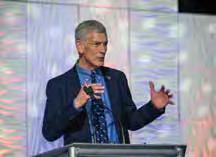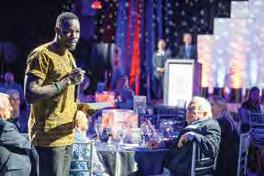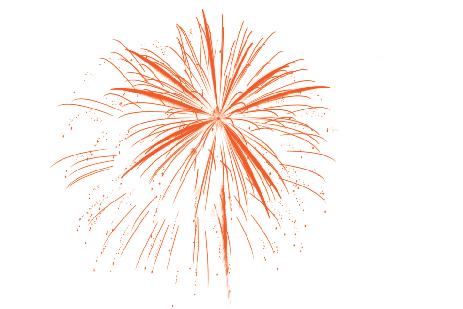








The Campaign for MINES@150 publicly launched in 2020 to support the aspirations of the MINES@150 strategic plan. The Mines community has invested an unprecedented to generate excellence today and for the next 150 years.
$589 MILLION $589 MILLION
In previous reports, we’ve told stories about the impact made possible by generous gifts from across the spectrum. In this final issue, we express our deepest gratitude to Campaign Champions—those who have made the most transformative gifts during the campaign—by sharing their stories.
The distinctiveness of Mines graduates reflects the uniqueness of the Mines student experience. The ingredients include rigor, challenge, practical experiences, traditions, teamwork, opportunities to turn ideas to reality, leadership, professional development and community. Investments in the Signature Student Experience support programs, activities, traditions, groups and facilities that play key roles in molding Orediggers.
Mines is ensuring all graduates have the business acumen they need to succeed and are prepared to advance their ideas and innovations at existing companies and ones they create. Investments support the thriving Mines Entrepreneurship & Innovation Ecosystem— state-of-the-art facilities, new programs and new curriculum— as well as expanded business curriculum and degrees.
Our ongoing pursuit of excellence and distinction is what ultimately attracts the top students, faculty and staff, coaches and studentathletes to Mines. Investments in Excellence and Distinction enable Mines to offer the unique programs, support, facilities and equipment that differentiate us from other universities.
Mines aims to ensure that promising students from all backgrounds can receive a distinctive Mines education and develop their great potential for successful and wideranging careers. Investments made through scholarships, community building or connecting with our future students at a young age will continue to attract and support the best and brightest to Mines for years to come.




THE CAMPAIGN FOR MINES@150 IS NOW OFFICIALLY THE MOST SUCCESSFUL FUNDRAISING EFFORT IN MINES’ HISTORY—AND NOT JUST FOR THE FUNDING RAISED. IT ALSO SPARKED RECORD PARTICIPATION AND INCREASED ENGAGEMENT, AND THE IMPACT IS ALREADY VISIBLE IN SO MANY WAYS. WE ARE INCREDIBLY GRATEFUL TO EVERY PERSON AND ORGANIZATION WHO MADE THAT HAPPEN.
The campaign was founded in the pride we have in our PAST, the strength of our PRESENT and the POSSIBILITIES for our future. One of its greatest impacts is a deepened and expanded understanding of the importance of philanthropy and its impact on our university. You’ll find many examples of this in the inspiring stories of investments in Mines on the pages of this report.
Thanks to you, Mines is positioned to stand out from all other universities. We have a clear mission, we are laser focused on it, and we are better prepared than others to produce the graduates, knowledge and innovations needed by industry and society for future prosperity.
As we celebrate the success and impact of the Campaign for MINES@150, we have our eye on the future and the rapidly changing world and higher education landscape around us. We are crafting our “Beyond MINES@150” strategic plan, and can share with you, our best supporters, that it will continue to move us toward that Top-of-Mind/First-Choice status we aspire to.
We have near-term opportunities to firmly establish Mines as the leading university in energy and critical minerals, to capitalize on our investments in quantum engineering, and to further differentiate and integrate business, professional development and a better understanding of the complexity of the world into our education. We will continue to expand the scale and impact of our innovation, entrepreneurship and commercialization activities. We want to grow the number of scholarships so that all students receive some level of financial support. And we want to make sure our competition teams—both athletic and engineering-related—have the resources they need to win at the national championship level.
Stay tuned for more information on that. As you might anticipate, private support will be critical, and we hope—with your help—to continue to attract future investments and investors to our cause.
An Oredigger's work is never done. Together, let's empower possibilities Beyond MINES@150.

Again, thank you, and go Orediggers!

Paul C. Johnson Mines President and Professor

Brian Winkelbauer Mines Foundation President and CEO
CAMPAIGN FOR MINES@150 LEADERS
Jerry ’68 and Tina Grandey
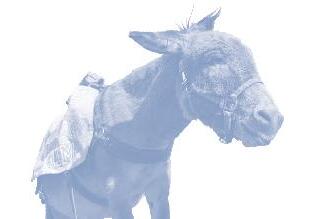
Bruce ’76 and Debra Grewcock
Howard E. Janzen ’76, MS ’77
Chair, Foundation Board of Governors





Corporations & Foundations
31K Total Donors 8K Alumni Donors 21K First-Time Individual Donors 1K First-Time Corporate/Foundation Donors 77K Total Number of Gifts 86% Gifts Under $1K
* 10/1/2016–6/30/2025. Numbers may be rounded.








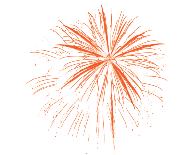


“External funding like the CoorsTek Fellowship in Advanced Ceramics makes the life of a graduate student and their advisor much easier—more time to spend on research, less on getting funding.”

Gabriel
Plummer, PhD
’22 CoorsTek Research Fellow



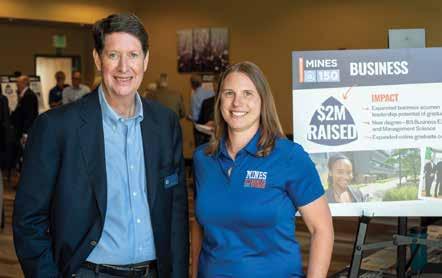

“It's an exciting opportunity to create an environment where business and engineering are viewed as complementary. I signed up for a significant undertaking, and thanks to the generosity of the Swigers, I can make it happen.”


“The funds from the endowed chair have been used to invest in equipment in the department and the Earth Mechanics Institute Lab, to support PhD students and for interactions with peers on a global scale, which in turn offers a lot of visibility for the department.”
Jamal Rostami, PhD, PE Haddon/Alacer Gold Endowed Chair in Mining Engineering


“Help paying for travel insurance or a flight from sources like the Sandusky Travel Fund can get students out of the United States for the first time. They see the world, and they see what engineering can do for communities.”

Juan Lucena, PhD
Humanitarian Engineering
Undergraduate Program Director

“Support from #idigmines donors has been used for field camp, field trips and needed equipment. Lowering student costs is always a priority. The program also brings together students, faculty, alumni, family and friends, building a stronger community.”

Steve Sonnenberg, PhD Professor, Geology and Geologic Engineering






“The Marv Kay Excellence Fund allows our department to make investments that help us win games and to recruit, retain and reward highperforming coaches. The flexibility has been critical to our success.”
David Hansburg Mines Athletic Director
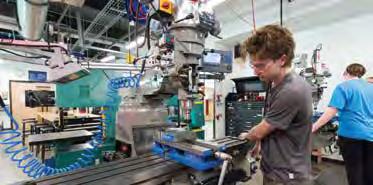


“I love going into makerspaces and seeing someone working on something cool. The Labriola Innovation Hub is a central place where students can help each other build projects and community.”
Sevy Swift ’19 Past President Mines Maker Society
“Mr. Whisler's investment stems from a fuller sense of hope for the upcoming generation of mining professionals and a sense of optimism for a revitalized, diverse, and more cutting-edge industry. I am committed to living up to that vision.”
Carson Richardson Class of 2026

J. Steven Whisler Scholarship
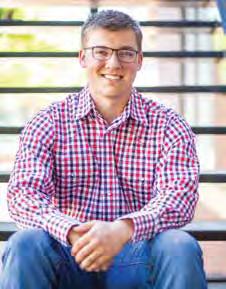

The CoorsTek Research Fellowship has attracted 24 extraordinary PhD candidates to Mines since CoorsTek and the Coors family established it in 2014.
The program has been so successful that the company and family extended funding through 2032 with another multimillion-dollar gift.


t his i N vestme N t Goes well beyoN d fu N di NG research. i t is about buildi NG career pathways for future GeN eratioNs of e NG iN eers aN d scie N tists.”
Randel Mercer Coorstek CTO
“This investment goes well beyond funding research,” said Randel Mercer, CoorsTek’s chief technology officer. “It is about building career pathways for future generations of engineers and scientists.”
CoorsTek Fellows work on scientifically interesting technical ceramics projects with many critical applications. They’re supported by Mines’ world-renowned materials science faculty.
The fellowship covers academic costs and a stipend. It also gives fellows scientific freedom and opportunities to connect with CoorsTek experts—advantages that set the program apart in an intensely competitive field to attract top academics from around the world.
“CoorsTek fellows get to follow their curiosity, unlike most PhD students who work on their advisors’ grants that come with milestones,” said metallurgical and materials engineering department head Geoff Brennecka, PhD, who directs the program. “Alongside the generous financial support, this freedom is really attractive and helps us bring some of the best graduate students to our program.”
Current CoorsTek fellows are working on projects in energy storage systems, fuel cells, water quality improvement and renewable energy, to name a few. Past fellows work at national labs, like the NASA Ames Research Center and NREL, in manufacturing or are starting their academic careers as postdocs.
“There are so many problems in the world that need the solutions that ceramics can provide,” Brennecka said. “Thanks to CoorsTek and the Coors family, our students have the flexibility to advance materials science and create those solutions.”
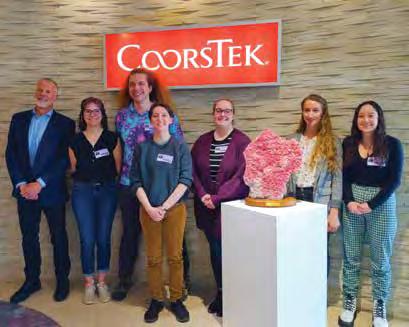
Campaign Champions—those who made the most transformative gifts during the Campaign for MINES@150— have accelerated our ability to support students, drive innovation and uphold excellence at Mines. Their investments have sparked widespread inspiration and elevated pride across the entire Mines community.
These donors truly embody the spirit of MINES@150—celebrating our past while building a strong foundation for the next 150 years of turning out distinctive graduates who are ready to solve the world’s most critical problems.

Denver entrepreneur Joe Cornell made an estate gift to Mines that should, at its peak and in perpetuity, fund half of 50 rural students’ tuition and half of their board while they live on campus.
Cornell’s gift consists of his real estate portfolio, valued at more than $25 million. It’s the largest gift Mines has received from someone who is not an alum.
Cornell, who grew up in rural towns across Montana, said his desire to help students from small towns stems from learning that the peers of his youth lacked the money, structure, family and counseling to succeed in industry.
“They were good students, but there’s a truth to the expression ‘Keep ‘em down on the farm,’” he said. “I want to provide that opportunity for students from those little, tiny
towns who get stuck. I want to get them educated and get them out so they can become something special.”
He decided to create his legacy at Mines because he was impressed by the caliber of the school’s STEM education and the quality of its students.
“Mines students are outstanding, a cut above in their intellectual abilities,” he said. “The engineers Mines is turning out will create things we need in this world. They are winners who have a high probability to contribute to our society and culture.”
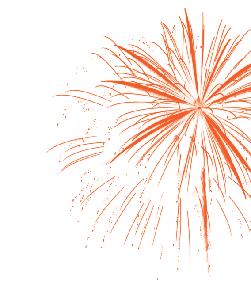

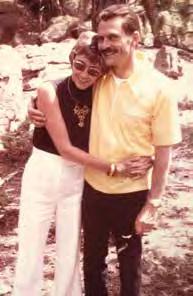
In 1985, Stewart ’50 and Johanna Collester created an endowed scholarship fund to benefit generations of Mines students. With continued donations over decades, the Collesters created two of the most generous student scholarships at Mines.
Stewart served as a Navy pilot during World War II before attending Mines.
The opportunities he gained as a Mines graduate shaped his career and opened doors around the world—and the couple wanted future generations to have that same chance.
“We wanted to reinvest our money into education,” Johanna said in 1993, when she created a second endowed scholarship after Stewart’s passing. “Hopefully the students, in turn, realize the value of helping others in the same manner. It is a reward to me that our estate can be productive in this way.”
Before she passed away in 2021, Johanna ensured the Collester legacy of supporting Mines students continued well into the future through an estate gift. In total, 58 undergraduate students have received the scholarship.


When Frank ’52 and Mary Labriola made the lead gift to create the Labriola Innovation District in 2019, they kicked off a new era of entrepreneurship and innovation at Mines.
The district is the crown jewel of Mines, comprised of the McNeil Center for Entrepreneurship and Innovation, McNeil Hall and the Labriola Innovation Hub and Aramco xWorks—one of the largest makerspaces at a U.S. university.
Mines President Paul C. Johnson said the district distinguishes Mines among the world’s top universities.
“The physical scale of this investment in innovation and projectbased learning is unparalleled,” he said. “We are incredibly grateful to Frank and Mary and the others who made this amazing addition to our campus possible.”
The Labriola InnoHub and Aramco xWorks have been buzzing with activity in the 40,000+ square feet of resource-rich facilities since they opened in February 2024.
First-year students taking the Cornerstone Design course or participating in First-Year Honors Programs build their concepts and prototypes at the InnoHub. The Multidisciplinary Senior Capstone Design Program and competition teams are also heavy users.
In the first year, 3,500 students signed up to use the stateof-the-art equipment and dedicated workshops—including

2,000 who took 3D printer training and 1,000 who learned to use tools in the wood shop.
“Mines has such a long history of teaching students really deep technical skills,” said InnoHub Director Victoria Bill. “Now we have this amazing facility that’s infused with resources that are setting the groundwork for students to level up their innovation skills and know how to make things at a level that’s beyond other STEM universities.”
The facility is part of the Mines Entrepreneurship & Innovation Ecosystem’s learning, building and launching model.
“We’re giving direct course support for entrepreneurship faculty and students and creating synergies with the Beck Venture Center, whose members will be able to use the space and tools here,” she said.
Also new: the Prototyping Fund, which covers material costs for students working on personal, team-based and classbased projects.
“The investment of resources is just not possible without alumni and donor support,” Bill said. “Every Mines student is being impacted by their generosity.”


Aramco, one of the world’s leading integrated energy and chemicals companies, made a financial gift to support the Aramco xWorks Innovation Space, part of the Mines Entrepreneurship & Innovation (E&I) Ecosystem.
Aramco xWorks—located across the plaza from the Labriola InnoHub —is comprised of 12 large-scale building bays that students use for senior design projects and team-based competitions. The facility includes a stateof-the-art Engines & Testing Lab for traditional and alternative engines research.
“Having the facilities and the environment for impactful, collaborative hands-on education is a powerful combination,” said Faisal Al-Hajji, Aramco senior vice president of human resources. “This gift aligns with our commitment to academic excellence, developing people and technology, and supporting innovative research.”
The gift adds a new chapter to the 40-year-long story between Aramco and Mines. Since the early 1980s, the company has sponsored hundreds of Saudi Arabian students to pursue undergraduate and graduate engineering at Mines. In 2024, about 80 Aramco-sponsored students attended Mines, with the largest cohort in the renowned Petroleum Engineering Department.
Aramco has also sponsored research at Mines since 2004 and has provided in-kind support.
“The Aramco xWorks Innovation Space is enabling our students to pursue larger and more complex projects and innovations at a level that other schools can only dream of,” said Mines President Paul C. Johnson.

Aramco and Mines representatives open Aramco xWorks

Students, faculty and staff are bringing their ideas to life at the 40,000-square-foot Labriola Innovation Hub and Aramco xWorks Innovation Space. Users work on academic, research, extracurricular and even personal projects. They receive free equipment training and access to at-cost supply purchasing, project storage and an enormous tool lending library. Conference rooms, a large classroom and a soaring atrium—home to Blaster’s Brew coffee shop—accommodate meetings and hangouts.
METAL SHOP: drill presses, MIG welders, CNC machines and more
WOOD SHOP: table saw, planers, fusion lasers and more
COMPOSITES & PAINT: resin printers, paint booth, industrial oven and more
ELECTRONICS: oscilloscopes, soldering stations, PCB mills and more
MAKERSPACE: 3D printers, specialty vinyl printers, sewing machines and more
SOFTWARE MAKERSPACE: dropdown screens, projectors and more
THORSON CAPSTONE LAB
CORNERSTONE PROJECT SPACE
MCNEIL CENTER FOR ENTREPRENEURSHIP & INNOVATION
12 large project building bays

In 1993, Charlie McNeil ’71 started NexGen Resources Corporation, initially a natural resources exploration and production company, in the basement of his family’s Colorado Springs home. Today it’s the parent company of NexGen Oil & Gas, NexGen Properties, NexGen Coal Services and Tinuum.
“For most of my career, I have been an entrepreneur, starting and investing in various company startups,” he said. “That’s why I wanted to focus my impact at Mines in the Entrepreneurship and Innovation Ecosystem. I wanted engineering graduates to have the skillset to start their own businesses.”
In 2020, McNeil and his wife, Judy, made a transformational $5 million endowed gift that inspired McNeil Hall and the McNeil Center for Entrepreneurship and Innovation.
The McNeil Center is the heart of the Mines E&I Ecosystem, aligning efforts across all academic departments and programs and working with campus facilities with an E&I focus. Students learn the process of bringing their innovative solutions to life, both through classes and challenges to solve real problems posed by corporate and civic partners.
The McNeil Center’s impact is impressive. In the 20232024 academic year alone, 891 students engaged in entrepreneurship classes, challenges and team projects. They also participated in workshops where they quickly learn and practice the essential skills needed to start a business.
The program also piloted a professional Innovation Certificate and increased community engagement with civic groups, companies and alumni.
“If Mines had an E&I Ecosystem when I was there, it probably would have saved me 10 years on my own learning to be an


t he future possibilities for miN es are imme Nse aN d e N dless. New ideas aN d tech NoloG ies will be discovered that will benefit mankind and, in turn, transform m ines oN the world sta G e.”
entrepreneur and understanding business,” McNeil said. “When I was a student, the focus was to educate engineers to work for large existing companies, not to consider starting your own company.”
McNeil has been an ardent Mines volunteer for decades. He and Judy are leaders of the Campaign for MINES@150. He is also a member of the Mines Foundation’s Board of Governors and he was appointed to the University’s Board of Trustees in 2016.
“The future possibilities for Mines are immense and endless,” he said. “New ideas and technologies will be discovered that will benefit mankind, and in turn, transform Mines on the world stage.”

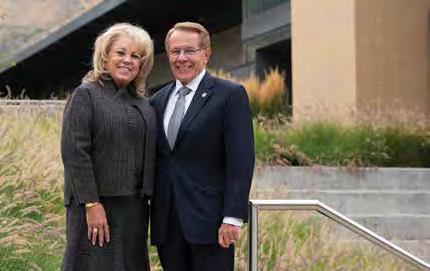

Mines has always produced some of the best engineers in the world, but if they wanted to start their own companies those skills weren’t baked into the curriculum. Now, students, faculty and alumni have all the resources they need to launch a startup, thanks to the Beck Venture Center.
The 30,000-square-foot Beck Venture Center opened in April 2024 with support from lead donors Mike and Kelly Beck, parents of two Mines graduates. It’s a key aspect of the Mines Entrepreneurship & Innovation (E&I) Ecosystem.
“We hope this investment will further strengthen Mines’ unique educational offerings and encourage students and faculty to transform their best science and engineering into new commercial ventures,” Mike Beck said. “In doing so, all will benefit. We are honored and privileged to play a supporting role in this worthy endeavor.”
The Beck Venture Center offers membership-based coworking spaces for entrepreneurs—including students and faculty who can apply for free membership. It also hosts entrepreneurship classes and related events. At the one-year mark, the Venture Center is incubating 60 startups—about half with faculty or student founders and half local businesses.
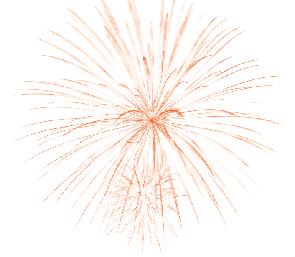
But it’s the Beck community and resources that make it uniquely Mines. It includes:
• A business accelerator program
• A network of professionals who give members free advice
• Business-related talks and networking at bimonthly Startup Forums
• Access to funding—Beck advisors helped companies secure $30 million so far
“We’re creating a fertile environment for a startup community for Denver and the Front Range,” said Zack Bennett ’99, director of the Beck Venture Center and Mines Venture Program. “If you have any entrepreneurial interests, we give you a home, a resource center and a built-in community.”
Also housed at the Venture Center: Mines Venture Fund 1, LP, which offers limited partners the ability to be investors in companies that have an affinity for Mines. It also guides Mines-related founders in business model development, mentorship and support for raising capital.

Mines Venture Fund 1's limited partners include the Mines Foundation and 18 alumni or alumni relatives. It has invested in four companies—GelSana Therapeutics, founded by Mines associate professor Melissa Krebs, PhD; Infinite Outdoors, founded by Sam Seeton ’16 and David Rhine ’19; Andrenam, founded by Matej Cernosek ’18, MS ’19 and Alex Chu ’18; and GoGreen Partners SPV–XtremeX Mining Technology, founded by Govind Friedland ’00.
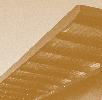



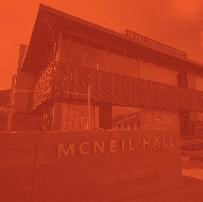
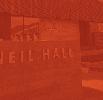




Lowell Shonk MS ’79 and his wife, Cheryl, made a transformative $5 million gift to establish the Lowell and Cheryl Shonk Endowed Chair for the Head of the Economics and Business Program. It’s the first named gift of its kind for the department.
They aim to help Mines advance business education for all students, ensuring they are equipped with the critical business acumen they need to excel in a rapidly evolving global economy—as engineers, scientists and entrepreneurs.
They previously established a $500,000 graduate fellowship and are now doubling it with another investment, to bring the endowed fellowship to $1 million to support students in Mines’ world-renowned Mineral & Energy Economics program.
Shonk’s deep commitment to Mines stems from his experience as a graduate student in the Mineral and Energy Economics program, which has been a hallmark of Mines’ economics and business offerings since 1969.

"With our endowed chair gift, Cheryl and I want to make a permanent difference in the department’s ability to advance its mission,” he said. “With the fellowship, we hope to lighten the financial burden of students and propel them to make a difference in their academic success. Both gifts are designed to further enhance the world-class Mines education that we believe in and that contributes to the next generation of minerals, energy and environmental leadership.”
At Mines, students receive a rigorous, hands-on technical education. But today’s most successful engineers, scientists and applied researchers also need to be fluent in the language of business. Across industries, organizations are increasingly seeking leaders who can blend technical expertise with business strategy. Through this gift, the Shonks are helping Mines rise to meet this demand.


Mines is producing future-prepared engineers by incorporating business and leadership skills, critical societal context and passion into our world-class

Scientific philanthropy is a driver of innovation at universities across the United States, particularly by funding earlystage science. Today, according to the Science Philanthropy Alliance, about 44 percent of basic science research in academic centers and nonprofit research institutes is funded by individual donors and foundations.
“Science philanthropists tend to fund things that the federal government will not, often because the research isn’t ready for prime time or is too interdisciplinary to fit in a niche,” said Walt Copan, PhD, vice president for Research and Technology Transfer. “As we see the federal government making changes in priorities that affect research funding, science philanthropy’s role is even more important.”
At Mines, one particular organization has been a champion for elevating research and building momentum for faculty: the Alfred P. Sloan Foundation. Since 2017, the Sloan Foundation has granted $4.2 million to 12 Mines-led projects, all of which are collaborations with other institutions.
“Mines has a great reputation in energy and environmental research,” Copan said. “But what really sets us apart is how these technical projects bring in our humanitarian engineering program with all its interdisciplinary connections. We have become a powerhouse of looking at the unique intersections between science, technology and society. The Sloan Foundation is right there providing grant support to further these ideas.”
In just the past year, the Sloan Foundation has awarded Mines researchers $1.7 million, including:
• $750,000 to support the Native American Mining and Energy Sovereignty Initiative at the Payne Institute for Public Policy
• $750,000 for a project focused on gaining a better understanding of the role mine refining projects play in domestic production of critical minerals for the energy transition
• $250,000 to study how energy researchers integrate societal considerations into their work


w e have become a powerhouse of looking at the u N ique i between science, tech NoloG y a N d society. t he s loa N f ou N datioN is riG ht there providi NG G ra N t support to further these ideas.”
Nicole Smith, PhD, associate professor in mining engineering, is the principal investigator on the $750,000 mining grant, in partnership with co-investigators at Mines and Fort Lewis College.
“As federal priorities shift, this kind of funding is vital to sustaining research that centers human voices, especially in areas often overlooked in policy discussions,” she said.
“I am deeply grateful for the Sloan Foundation’s support and unwavering commitment to advancing research that addresses complex societal challenges and is crucial for
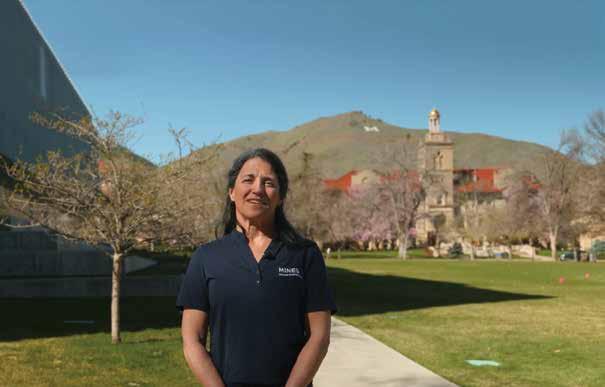

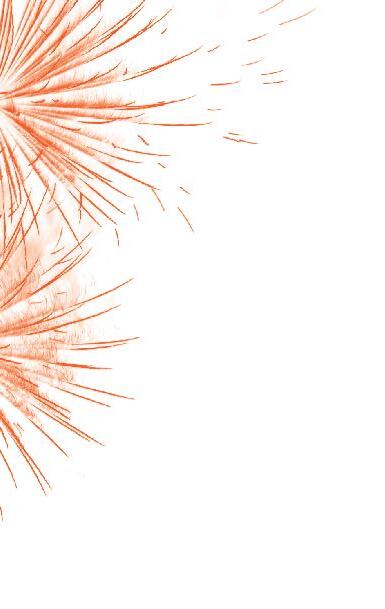
The construction industry is experiencing a technological revolution, requiring a new kind of engineer to take it into its next phase. At the same time, this booming industry is facing a serious workforce issue, with a wave of retirements, especially at the leadership level. Industry has turned to Mines for highly skilled engineers for years. Now, companies are making critical investments to ensure graduates have the technical skills and hands-on experiences to help them
The lab has become the primary teaching and research facility for construction materials since it was built in 2019 with an endowed gift from the Ralph C. Wilson, Jr. Foundation and Interstate Highway Construction (IHC). More than 60 students use the facility every semester.
“The nature of our field is constantly changing,” said associate professor Reza Hedayat, PhD, who manages the lab. “Our goal is to have a laboratory with state-of-the-art equipment. The gift has made this happen.”
Hedayat said the lab has made a big impact on the quality of instruction for civil and environmental engineering and construction engineering students, especially in hands-on learning.
For example, the Concrete Canoe and Steel Bridge competition teams use the space to innovate their design for the win.
The lab has also supported groundbreaking research in the emerging and impactful field of waste reuse, Hedayat said.
“Not only has the lab improved education, it has also sparked interest in construction materials among students and faculty,” he said. “We are truly grateful to the Wilson Foundation and IHC.”
The Beavers Charitable Trust, comprised of the country’s most prominent heavy construction companies, made a three-year, $900,000 grant to build a program aimed at solving a serious workforce issue.
The Heavy Construction Studio at Mines is a campus-wide program that is designing a new path for students to build careers in complex construction projects, like highways, dams, pipelines and tunnels.
“The Beavers’ investment in our approach to inspiring and educating students is a real testament to what industry thinks of Mines and our graduates,” said Mike Mooney, PhD, PE, professor in civil and environmental engineering and mechanical engineering.


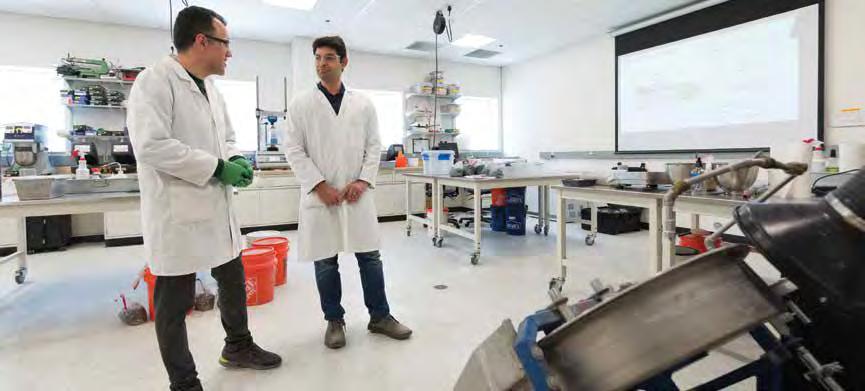


m any students want to work in aN i N dustry where they G et to solve dynamic problems and work with their ha N ds. i’m oN e of them.
i’m Now pursui NG a phd because i know an untraditional path
in
civil e NG iN eeri NG will be exciti NG .”
Joey Verkler ’23, MSc ’24
The Heavy Construction Studio connects students from all engineering backgrounds with learning experiences, internships and careers in the highly rewarding and impactful heavy construction industry.
Joey Verkler ’23, MSc ’24 is one of two students taking the lead in planning networking events, academic lectures by industry leaders and site tours for the program.
“Many students want to work in an industry where they don’t have to sit at a desk all day, solve dynamic problems, and get to work with their hands,” he said. “I’m one of them. I’m now pursuing a PhD because I know an untraditional path in civil engineering will be exciting.”

In 2019, the organization also started the Beavers Charitable Trust
Kiewit Corporation and company board chairman Bruce Grewcock ’76 made a nearly $2 million investment to create Mines’ newest scholar community—one designed to shape future construction engineering leaders.
The program gives high-potential construction engineering majors significant multi-year aid and exclusive experiences to kickstart their career readiness. The program’s first cohort of nine students just wrapped their first year.
“Mines students are already high achievers with great drive and technical savvy,” Grewcock said. “Through this program, students with exceptional leadership potential will gain the skills and knowledge they need to take initiative, inspire others and successfully advance in our ever-changing world.”
Senior Payton Vellenga just returned from a trip to Fort Worth with other Kiewit Scholars, where they visited the Southeast Connector Project—what he called a mega transportation job.
“It’s exciting to visit active projects that I wouldn’t have seen in person if I wasn’t a Kiewit Scholar, and especially the opportunity to see different technologies and construction operations in action,” he said. “The program is also a game-changer for my financial situation, which allows me to focus more of my time and energy on my studies and my career.”


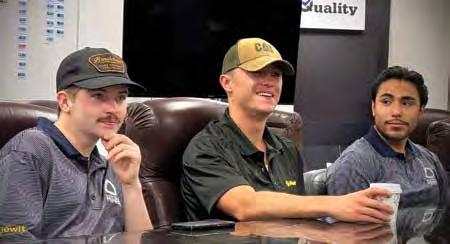

In 2023, retired mining executive Steve Whisler MS ’84 and his wife, Ardyce, made a $7.5 million investment in the mining engineering department. It’s one of the program’s largest gifts since Mines was established in 1874 to support Colorado’s booming mining industry.
The investment created the J. Steven Whisler Chair for the Head of Mining Engineering, held by Bill Zisch ’79; the J. Steven Whisler Professor of Practice, held by George Sturgis ’78; and the J. Steven Whisler Scholars Program, which funds scholarships for mining engineering students.
“Mines students go through a trial by fire that prepares them for a career that requires resilience,” Whisler said. “They have a stick-to-it attitude that's refreshing. Mining today depends on people who are prepared to work on a problem until they solve it. That's what I've seen Mines graduates do and do well.”
Whisler included program goals within the investment. Zisch, who took the department reins in 2023, said the direction has provided an anchor for the department’s priorities.
One goal: increase undergraduate enrollment by 50 percent. At the end of the 2024-2025 academic year, 141 students
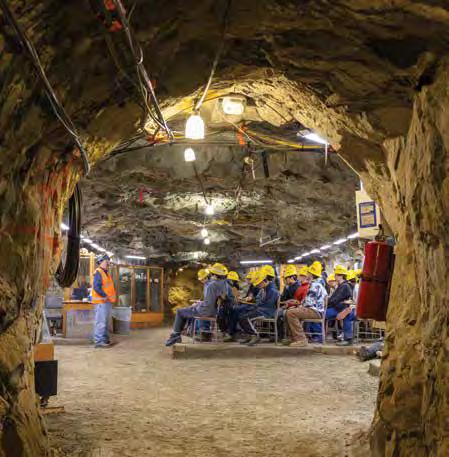
are majoring in mining engineering—about a 40 percent increase since 2023.
Zisch attributes the growth to students learning about the demand for mining to meet the needs for critical minerals, often in an intro to mining class.
“These students like the outdoors and getting their hands dirty,” Zisch said of students who had changed majors to mining. “Rather than sitting behind a desk all day, they would rather be out solving problems and making a big impact on the world.”
Zisch said hiring Sturgis as the professor of practice has brought a strong industry perspective into upper-division classes and has helped develop value from research and education at the Edgar Mine. Sturgis spent 45 years in international mining and civil operations.
“We continue to be very appreciative of Steve and Ardyce’s gift and particularly the guidance that came with the funding,” Zisch said. “As we achieve the goals which have been set, we will certainly enhance Mines’ position as the leader in mining engineering education.”






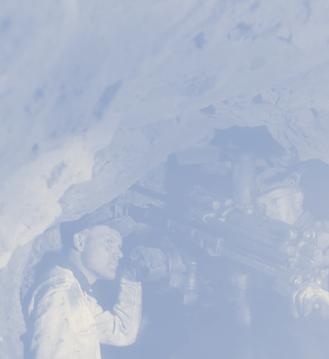

Joe W. Gray ’68—physicist, inventor and pioneer in biomedical engineering technologies—made a $5 million gift to Mines to create the Joe and Jane Gray Endowed University Chair.
The highest faculty distinction at the university, the chair will support leaders working across biosciences, climate sciences, clean energy and environmental engineering to tackle urgent global issues.
“We need leaders and teams that can address problems in these areas head on and provide effective solutions,” he said. “Mines is one of the few places that goes beyond supporting innovation alone and encourages engagement in goal-oriented, public-private sector collaborations.”
Gray said he was recruited to the Oregon Health & Science University Knight Cancer Institute from his 20-year breast cancer research career at University of California, San Francisco with the allure of an endowed chair. He is professor emeritus at both institutions.
“The chair funding and philanthropic support I received gave me flexibility to pursue ideas that might not pan out,” he said. “I could do new things and keep learning until we found the thing that worked.”
He called philanthropic support “the lifeblood of innovation,” especially in an era where scientists are competing for ever-shrinking funding resources.
This gift is also a tribute to his wife, Jane, who passed away in 2022.
“We were always a team,” he said. “She gave me the space in life to do the science and the inventions. Without her, I wouldn’t have had the career I had. Including her in the endowed chair name reflects the deep gratitude, respect and love I have for her.”
Through his support, Gray hopes to encourage future engineers to build a “livable, supportive and diverse world”— and live in it, too.

Gray, the penultimate researcher, sponsors the twice-yearly Mines Undergraduate Research Symposium. At the end of each semester, students who participate in faculty-led research present their findings during a poster session and on-stage talks.
“I believe strongly that good ideas can be made better through discussions with colleagues from different fields,” he said. “I also believe that new ideas can emerge from chance interactions. Undergraduate research symposia encourage such interactions to happen.”
The symposium started in 2018 with one session and 80 students. By the 2024-2025 academic year, it had grown to two sessions with more than 200 students participating.

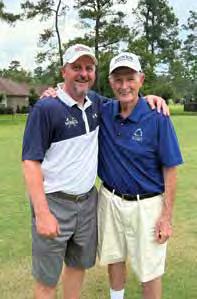
Steve Chesebro’ ’64 came to Mines with $500, a pat on the back from his dad and athletic scholarships for baseball and football.
Today he is one of Mines athletics’—and the school’s—biggest supporters.
“Without the Mines education, I would not have achieved my potential,” he said. “I owe Mines, and a good way to pay back is to provide support to enhance all aspects of the school, including athletics. My wife, Dollie, and I want to help others like me who struggled to afford a Mines education by providing scholarships.”

During the Campaign for MINES@150, the couple established the Chesebro’ Athletic Development Fund and the Chesebro’ Athletic Current Use Fund to provide

scholarships, recruiting funds and championship rings and necklaces for award-winning teams and athletes.

They previously established the Chesebro' Distinguished Chair in Petroleum Engineering and the Chesebro’ Faculty Development Fund to support the department that gave him his start.
In 2001, Chesebro’ helped start the Houston Endowed Scholarship Golf Tournament, which has raised over $1 million and awarded scholarships to more than 100 Mines students.
Chesebro’, who is an emeritus member the Mines Foundation Board of Governors and a member of the Mines Athletics Hall of Fame, said some of his fondest Mines memories happened on a field—including hitting the longest home run in school history.




Those who knew Joan Stratton ’74 might picture her in a Mines sweatshirt with a big smile on her face, cheering on a Mines team.
A trailblazer in Mines athletics, Stratton earned a varsity letter on the rifle team alongside a degree in geology. She was one of the first women to compete in track & field. Later, she attended multiple Olympics and became a U.S. national shot-put champion (ages 35+) in 1995.
She donated generously to her interests—including athletics, geology, civil engineering and honors programs— through 11 charitable gift annuities that provided her with income for the rest of her life.


After Mines, she earned a medical degree at Dartmouth College and worked as an anesthesiologist, making Nevada her home. But she never lost her Mines roots.
Stratton attended M Club events across Nevada and California and served on the Mines Foundation Board of Governors.
Not one to miss out on school spirit, she also helped organize the Class of 1974’s 50th reunion and the group’s
fundraiser for the Sesquicentennial Bell that students now ring to celebrate their graduation.
Stratton passed away in December 2024, leaving a generous unrestricted estate gift and a legacy of Oredigger spirit that will be hard to match.

One hundred and one scholarships for student-athletes in Olympic sports like wresting, swimming and soccer. A new outdoor track surface and field-event area upgrades to bring the area to NCAA standards. One of the few on-campus cross country training courses in the United States, which was initially designed by Mines civil engineering students.
These are the impacts of a 2023 anonymous $6.5 million gift to Mines Athletics. The bulk of the gift, $5 million, will provide scholarships in Olympic sports—about $440,000 a year for 20 years. The balance was directed to facilities improvements.
"A single donation of this size is unusual at any level of college athletics, and the magnitude of its impact here at Mines is unbelievable,” said David Hansburg, Mines
athletics director. "Certainly, this kind of philanthropy increases the odds of Mines sustaining our current success and continuing to grow."

The donor has also given significant support to the Silver & Blue Football Scholarship Fund, which has provided nearly 50 scholarships since 2019. They also were a lead donor to the Softball Field Replacement Fund, which replaced the facility’s grass field with turf in late 2024.

Bruce Grewcock ’76 has a passion for helping Mines ensure students have the support they need while creating leaders who will make a big difference in industry and the world around them.
In 2020, he and his wife, Debra, made a transformative $30 million gift to establish the Grewcock Presidential Scholars Program. It’s now one of Mines’ most prestigious and leadership-intensive Scholars Communities.
“The best leaders today are great listeners,” said Grewcock, executive chairman of the board of Kiewit Corporation and chair of the Mines Board of Trustees. “They have a broad range of skills and interests. They lead with intellectual curiosity, and they make decisions with emotional intelligence. Mines students get a great technical education here, hands down. I want to expand their worldview, to expose them to topics and experiences that are way off their classroom agenda.”
The second cohort of Grewcock Scholars graduated in May 2025.
“It has been satisfying to see how they’ve grown as individuals since they were freshmen and how they’re already applying the things I wanted them to get from the program,”
Grewcock, an emeritus member of the Mines Foundation Board of Governors. “Their families said the scholarship allowed their kids to get this great education without having student loans or putting a heavy financial burden on the family. I feel like I have made a difference.”

The couple are longtime supporters of Mines, including serving as Campaign for MINES@150 leaders. In the past, they made substantial gifts to establish the Center for Underground Construction and Tunnelling and support its growth. Most recently, they made a gift to help the mining engineering department recruit first-year students.
Grewcock’s dedication to Mines has earned him numerous honors from the university, including the Tourmaline Award (2018) and Distinguished Achievement Medal (1999).

t he best leaders today are G reat liste N ers. they have a broad ra NG e of skills and interests. they lead with i N tellectual curiosity, and they make decisioNs with emotioNal iN telliGeNce.”
Bruce Grewcock ’76 Executive Chairman of the Board Kiewit Corporation Chair, Mines Board of Trustees




"Being a Harvey Scholar pushed me as a human and adult. Half of my friend group to this day is comprised of Harvey Scholars."

Emily Harrington ’22, MS ’22 Harvey Scholars Program
“Carrie Kling’s generosity is allowing Future Energy Scholars to do activities like travel and internships that cost-prohibitive to students but also are incredibly important to becoming a well-rounded engineer and leader.”

Toni Lefton Executive Director, University Honors and Scholars Programs



“Being a Grewcock Scholar was an immersive experience. It changed how I look at being a leader, and I think that was the point.”



INDIVIDUALS
Donna S. Anderson and Larry W. Anderson
Thomas C. and Marianne Aude
Mike and Kelly Beck
Mark and Tina Berkstresser
John Briggs and Jeffrey* Feiffer
Robert J. Candito
Steve and Dollie Chesebro’
Stewart M.* and Johanna P.* Collester
Leslie and Doug* Collins
W. Grover Coors
Joseph M. Cornell
Ronald H.* and Alice Cox
David D., IV and Meredyth M.S. Crichton
Dr. Gerald L. Depoorter
Paul E. and Terri Dorr
F. Scott Dueser
Joseph R. Dunbar
Ben L. Fryrear
Stephen P. "Paul" and Farris Dean "Dee" Gavora
Melanie Gipe
Jerry and Tina Grandey
Joe W. and Jane E.* Gray
Bruce and Debra Grewcock
The Hugh and Michelle Harvey Family Foundation
Dr. Fred and Kathleen Hilterman
Michael and Ann Marie Hughes
James Family
Howard E. Janzen
Paul C. and Elyse Johnson
Thomas E. and Tamara Jorden
Frank and Mary* Labriola
Lockridge Charitable Foundation
Eric Dee Long
Dr. Terry C. Lowe
Stanley Lukezic and Ann MomWai* Lukezic
J. Robert Maytag*
Rob and Ann McKee
Charlie and Judy McNeil
W. Richard Moore
Mark Moseley-Williams
Nilendu S. and Minakshi Mukherjee
Mike Nagorka
George Neserke
Jay and Julie Ottoson
Deborah A. Peacock
Ward and Karen Polzin
Robert M. Pozzo
Jim and Ann Ruble
David W. Schlendorf
Neal E. and Margaret R. Schmale
Bill and Karen Scoggins
Lowell and Cheryl Shonk
Charles E. and Louanne* Shultz
Thomas C.* and Mary* Snedeker
Sandy Stash
Dean and Lindsay Stoughton
Joan V. Stratton*
Dennis G. and Suzi L. Strauch
George A. Sturgis, Jr. and Beth A. Revels
Andrew and Sherry Swiger
Rick Tallman and Lisa Flores
J. Don and Lois Thorson
Frances Vallejo and Scott Irvine
Jeff and Gina Vaughan
Wang Family
Bill and Avis Ward
Melanie K. and Edwin H. Westergaard
J. Steven and Ardyce D. Whisler
Anonymous
*Deceased




During the Campaign for MINES@150, we’ve recognized people and organizations whose contributions are catalyzing today’s excellence and tomorrow's possibilities through campaign recognition societies:
• MINES@150 VISIONARIES, listed on this page, committed gifts or research support of $1 million or more
• PARTNERS@150 committed $150,000 or more through a blended current-use and estate gift
• INFINITE MINERS committed $25,000 or more in a new or existing endowed fund
Find a full list of recognition society members at campaign.mines.edu/donor-recognition.
Adolph Coors Foundation
Advanced Technology International
Alfred P. Sloan Foundation
Alpha Foundation
American Chemical Society
Aramco
ArcelorMittal
Beavers Charitable Trust
BHP
Boettcher Foundation
bp America Inc.
CBMM—Companhia
Brasileira de Metalurgia e Mineração
CDM Smith
Chevron
Colorado School of Mines
Alumni Association
ConocoPhillips
CoorsTek
Daniels Fund
Denver Scholarship Foundation
Elementum 3D
EOG Resources, Inc.
EVRAZ Rocky Mountain Steel
ExxonMobil
Fervo Energy Company
Freeport-McMoRan Foundation
FuelCell Energy, Inc.
General Motors
Gordon and Betty Moore Foundation
Honeywell International Kennedy Jenks
Kiewit Corporation
Lam Research Corporation
Leidos, Inc
Lockheed Martin
National Center for Defense Manufacturing and Machining
Newmont Corporation
Niron Magnetics, Inc.
Nucor Corporation
Oil and Gas Climate Initiative
Oxy
Petrobras Phillips 66
Quadrature Climate Foundation
Ralph C. Wilson, Jr. Foundation
Shell USA, Inc.
SSAB Americas
Steel Founders' Society of America
Tata Steel Nederland Technology B.V.
The Edna Bailey Sussman Fund
The Water Research Foundation
TotalEnergies
Universidad Nacional de San Agustín de Arequipa Viola Vestal Coulter Foundation
W.M. Keck Foundation
Anonymous






Read expanded versions of these stories on the Campaign for MINES@150 website







